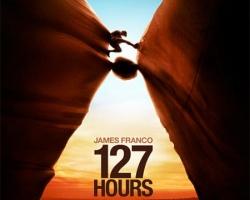For adolescents in trying circumstances, films can be a great way to gain perspective, offer points of comparison and find comfort. These movies offer rare vistas into rural or urban settings that are all too often overlooked by Hollywood (and the church). They celebrate survivors.
Academy Awards arise from putting characters (and audiences) through an emotional wringer. For youth workers serving in challenging settings, it can be daunting to watch tough, realistic films such as 127 Hours. Their language and images are often raw. While 127 Hours affirms the gift of life, it also demonstrates in graphic detail what Aron Ralston had to do to escape a remote slot canyon in Utah. Independence ends up quite over-rated. His desperate situation calls for drastic measures.
Westerns are rooted in America’s rugged past. While U.S. Marshall Rooster Cogburn is hired because of his ruthless reputation, 14-year-old Mattie Ross demonstrates the most tenacity in True Grit. She longs to bring Tom Chaney, the man who murdered her father, to justice. The Coen brothers capture the Old Testament themes found in Charles Portis’ original novel. What does Mattie ultimately learn? There’s not much justice on this side of paradise, so perhaps we’re better off “Leaning on the Everlasting Arms.”
Winter’s Bone is a rare peek into a rural Ozark community. Jennifer Lawrence offers an Oscar-worthy performance as Ree Dolly, a daughter in search of her drug-dealing dad. She teaches her siblings how to skin a squirrel and displays pluck and courage in tracking down her menacing uncle, Teardrop. Our respect for Ree is matched by our revulsion at her bleak family situation. Winter’s Bone is chilling.
Restrepo takes viewers inside a bunker in Afghanistan. For a disproportionate number of urban and rural kids, joining the military remains the quickest way to escape their settings. As the riveting documentary Restrepo illustrates, such relocation comes at a high personal cost. Youth workers would be wise to show this gripping portrait of combat to students considering enlisting. Restrepo raises respect for our troops but also questions the price of victory.
Most Hollywood movies have a glossy sheen such as Takers, an urban version of Ocean’s 11. It is about smooth criminals planning a heist. The film’s release was delayed when two of its stars were arrested—Chris Brown and T.I.—which might make Takers a cautionary tale except it also promotes the allure of money, crime and violence. For those in urban ministry, Takers could lead to a discussion about temptation. Flashy things also can be quite deadly.
The most powerful film about determination to overcome child abuse remains Precious. This tough, gritty picture won well-deserved Oscars for screenplay and for Mo’Nique as best supporting actress. It drops viewers inside the challenging times of an African-American teenager who remains precious in God’s sight even after she’s been raped by her father. For youth workers serving those who’ve been abused, Precious may serve as a cinematic role model, finding her voice amid horrific circumstances.




